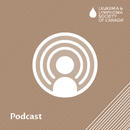Resource Library
Showing 41 to 50 of 333 results
Michelle Lambert speaks with Veronica Vardy, mother of 5 year old Amelia who is an ALL survivor. Veronica discusses the impact cancer had on her daughter, her family, and what her role as caregiver was like.
Dr. David Szwajcer explains the basics of Chimeric Antigen Receptor T-Cell therapy, or CAR T-Cell therapy. Dr. Szwajcer is a staff physician working at CancerCare Manitoba and the Health Sciences Centre in Winnipeg.
Barry Yhard is a Lymphoma survivor currently employed with the Canadian Forces Health Services Group. He is certified by the Surgeon General as a mental health educator. Barry served for 33 years as an active member of the military but was injured in 2009 and in 2010 diagnosed with PTSD.
Marell Tomeh was first diagnosed with ALL in April 2013 at age 19. Following the two-year Dana Farber Protocol, Marell was in remission for 3 years before relapsing in September 2018 at age 24. After an eventful and complicated journey to remission, Marell was finally able to receive a stem cell transplant in April 2019 at age 25.
Meghan MacMillan is a Clinical Nurse Specialist in the Adolescent and Young Adult Program at Princess Margaret Cancer Centre. She helps support the care and specific needs of patients diagnosed with cancer between the ages of 18-39 years old.
Hart is a non-Hodgkin lymphoma survivor and has been actively involved with the LLSC since 2011, primarily as a First Connection volunteer.
Paula Vanni has worked for CIBC for 25 years in a variety of positions including as a Director in CIBC’s financial advice office. She is currently the Market VP in the Vancouver Lower Mainland East market. She holds a degree in Women’s Studies and Sociology from the University of Western Ontario and a Masters in BA from Dalhousie.
Halfway through her master's degree abroad, Rachele was diagnosed with Hodgkin's Lymphoma and had to put school on hold. After achieving remission status following two years of treatment, Rachele was ready to go back to school and finish her degree. Despite the challenging journey back into an academic setting, she managed to complete her studies.
Rachelle Ramsay is a RN with her Certification in Oncology, currently working at the Tom Baker Cancer Centre. Kent Parlee recently celebrated 36 years of marriage to his wife and best friend Cheryl. Kent and Cheryl enjoy spending time with family, travelling and volunteering at home and abroad. Kent is a CLL survivor.
Dr. Kareem Jamani talks to us about CML treatment options and diagnosis.
